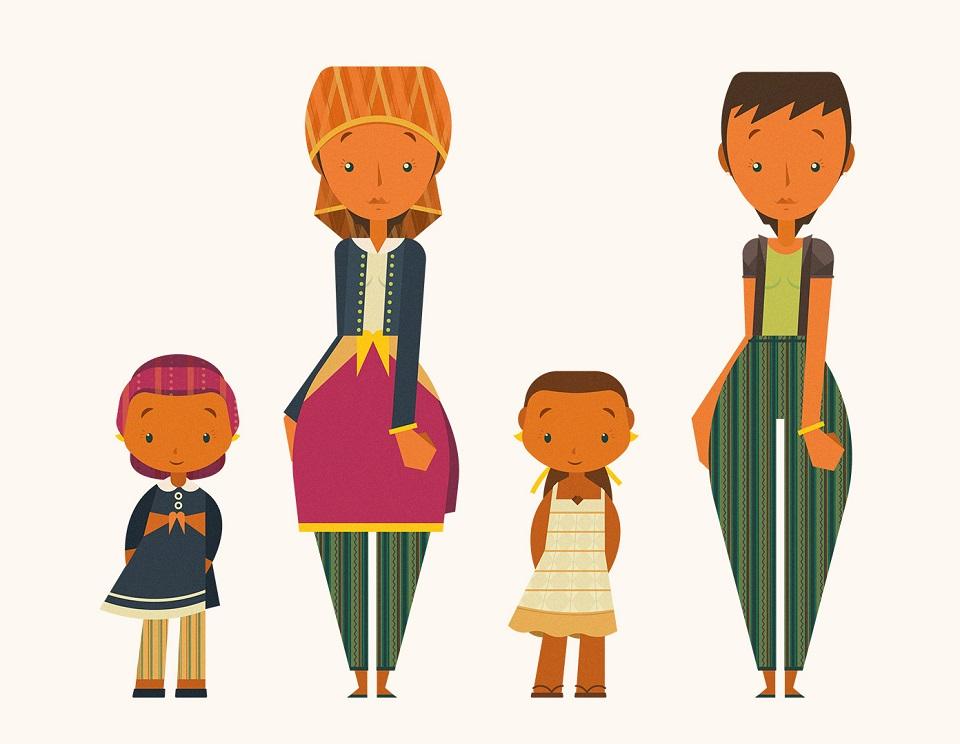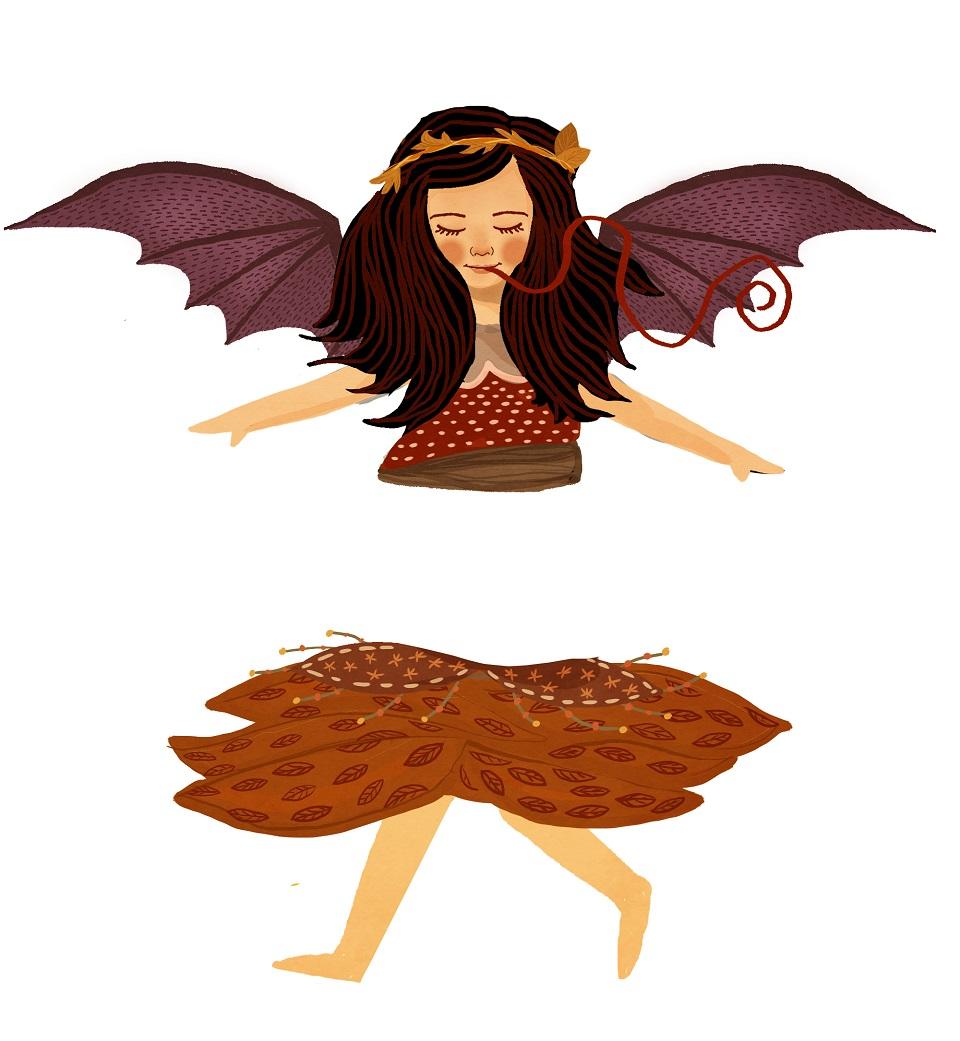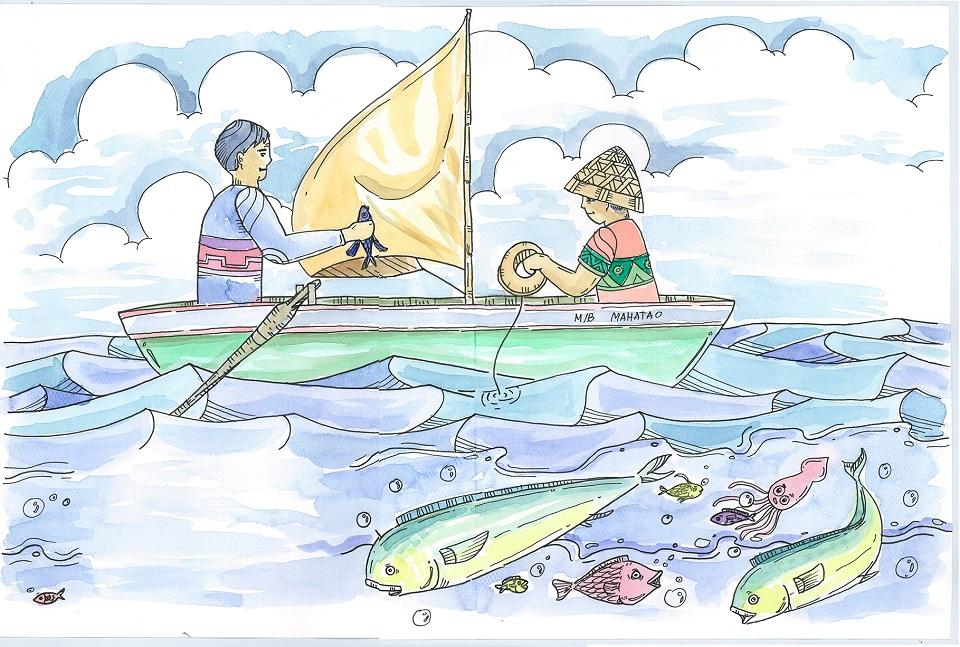Discover new Filipino tales in Sari-Sari Storybooks
Dragons and princesses and fairies are great, but sometimes, one wonders, there has to be something else. And there is. Unusual stories in unfamiliar languages abound in a new project called Sari-Sari Storybooks.
Written for under-represented Philippine language groups, these stories feature unique characters and diverse cultures.

On Kickstarter, Sari-Sari Storybooks was able to raise more than the $14,000 goal from 200 backers in 11 days. As of November 2, the total has reached more than $18,634 from more than 300 backers. "People have been so kind, Filipinos and non-Filipinos alike. I believe there is a hunger for more diverse stories now, and this project is hitting a nerve," said graphic designer Christina Newhard, who started the project.
The first book in the series is "Melo the Umang-Boy," an Ivatan tale about a young boy who must overcome his shyness to help some sea creatures rebuild their magical ocean city after a disaster.
The Cebuano tale "Kalipay and the Tiniest Tiktik" is about a bat-winged, long-tongued tiktik, Gamay, who happens to be a vegetarian.
In the Chavacano tale "Amina and the City of Flowers," a young Yakan weaver from Basilan learns to overcome her homesickness when she moves to Zamboanga City.
After hitting the target goal to cover the printing costs for the second and third books, Sari-Sari Storybooks seeks support for a fourth book, "Sandangaw." Written by poet and linguist Voltaire Oyzon, the Waray tale is about a tiny child who goes to a magic woman with his wish to grow. After this batch of stories, they will be producing Meranaw and Aeta stories.
The project aims to complement the Department of Education's mother tongue-based education, which was implemented in 2012. About 46 percent of all living languages are endangered, according to the Endangered Languages Catalogue (ELCat). The same study suggests that one language dies every three months. Meanwhile, there are 15 Philippines languages listed in the UNESCO Interactive Atlas of the World’s Languages in Danger.

"There's no one method for choosing the languages, but I did want to balance large and small Philippine languages, and to equally represent Luzon, the Visayas, and Mindanao," said Newhard. "It's important to Sari-Sari Storybooks' mission to represent Philippine diversity equally, and include Muslim and lumad characters in the stories as well."
Cebuano, one of the most widely spoken languages in the Philippines, was an obvious choice. Ivatan, on the other hand, is only spoken by about 30,000 people. However, said Newhard, "[it] is important because it relates to the Yami language of Orchid Island (Taiwan), and suggests clues to the Austronesian migration into the Philippines. Chavacano is unique—it's one of only two Spanish Creoles in the entire world (the other being Palenquero, in Colombia)."
Newhard began working on the project several years ago, and along the way, met storytellers, illustrators, translators, and designers who became her collaborators. One of these, Alyssa Sarmiento-Co, came up with the project name. She also developed themes for "Melo the Umang-Boy" with a week of interviews in Batanes, and created the character of the very busy octopus.
Apart from printed versions, the books will also be available digitally, with interactive features such as videos and games. In "Melo the Umang-Boy", e-book readers will be able to watch Ivatan elders singing laji, the indigenous oral poetry of Batanes.

"They also create different kinds of access. Digital books can be bought anywhere in the world in minutes, with a credit card and an internet connection, but printed books can go where the internet can't. Printed books don't need an expensive iPad or tablet to be read," Newhard said.
On Kickstarter, backers can pre-order the books by pledging different amounts, with corresponding rewards that relate to the project. The offers include a seputangan (Yakan head scarf), and a 3-D torogan (a toy house modeled from the ancestral house of Meranaw royalty) developed by Davao-based designers and social entrepreneurs SwitoTwins, and a personalized portrait by the illustrators.
"Surprisingly though, the Angel Donor has been the high-end reward of choice. That tells me that people really do care about the project values, about getting these books into the hands of children," said Newhard. "We've had three Angel Donors so far, ensuring 750 books will be shared among the Batanes School System, Library Renewal Partnership, and the Soar High Foundation of Lanao."
Newhard adds that Philippines-based backers will receive 2-for-1 on the printed book pledges. "For example, a Philippines-based backer that pledges $10 for 1 printed book will receive 2 printed books, and if they pledge $30 for 3 books they will get 6 books." The printed books will be available in July 2017.
Kickstarter picked Sari-Sari Storybooks as a "Project We Love", and it continues to gain support. For Newhard, one of the best responses is from the future readers. "Most especially though, Filipino parents have messaged me to say they're excited about reading the books to their children, which means a lot to me," she said. — BM, GMA News



